Course Catalog
Courses Primarily for Undergraduate Students
HUM 205 – The World of Homer
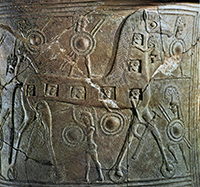
HUM 205: The World of Homer
(CLASSICS 210-0)
Ann Gunter (Art History, Classics, and Humanities)
Fulfills Distro 4 (Historical Studies), 5 (Ethics and Values), or 6 (Literature and Fine Arts)
What do we know of the world inhabited by the heroes of Homer's epic poems, the Iliad and the Odyssey? Do the poems describe a largely imaginary realm created by their author, or do they reflect a particular period of ancient Greek history -- and if so, which one? This course explores the society, economy, and culture of Iron Age Greece with special emphasis on the Geometric and early Archaic periods, emphasizing what scholars have learned through archaeological discoveries along with study of the poems themselves. Topics include the excavations at Troy, Athens, and other sites; contacts with Egypt and the Near East and colonization in the Mediterranean world; trade, exchange, and the technology of travel; literacy and oral tradition; political communities and warfare; religion, burial practices, and the art of ritual and commemoration.
HUM 220-0-20 – Health, Biomedicine, Culture, and Society

HUM 220-0-20: Health, Biomedicine, Culture, and Society
(SOCIOL 220)
Steve Epstein (Sociology)
Fulfills Distro 3 (Social and Behavioral Sciences), Distro 5 (Ethics and Values), or Interdisciplinary Distro
Present-day medicine and health care are flashpoints for a bewildering array of controversies--about whose interests the health care system should serve and how it should be organized; about the trustworthiness of the medical knowledge we rely on when we are confronted with the threat of illness; about the politics and ethics of biomedical research; about whether health care can be made affordable; about how the benefits of good health can be shared equitably across lines of social class, race, and gender; and about the proper roles of health professionals, scientists, patients, activists, and the state in establishing medical, political, and ethical priorities. By providing a broad introduction to the domain of health and biomedicine, this course will take up such controversies as matters of concern to all. We will analyze the cultural meanings associated with health and illness; the political controversies surrounding health care, medical knowledge production, and medical decision-making; and the structure of the social institutions that comprise the health care industry. We will examine many problems with the current state of health and health care in the United States, and we will also consider potential solutions.
HUM 260-0 – Russian Culture in Revolution: From Lenin to Putin
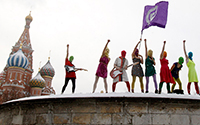
HUM 260-0: Russian Culture in Revolution: From Lenin to Putin
(SLAVIC 255-0 / HISTORY 200-0)
Team taught by: John Bushnell (History), Clare Cavanagh (Slavic), Jordan Gans-Morse (Political Science), Christina Kiaer (Art History), Ilya Kutik (Slavic), Saul Morson (Slavic), Inna Naroditskaya (Musicology), Sasha Novozhenova (Art History), Yohanan Petrovsky-Shtern (History), Christopher Pike (Slavic), and Dassia Posner (Theatre)
Fulfills Distro 4 (Historical Studies), 5 (Ethics and Values), or 6 (Literature and Fine Arts)
2017 is the 100th anniversary of the Russian Revolution. To make sense of the significance of this anniversary, this unique course provides an introduction to modern Russia’s rich cultural history, from the revolutionary fervor of the 1920s to Stalinist repression, from the vitality of official and unofficial art during the post-Stalin “thaw” to the new artistic revolutions that followed the collapse of the Soviet Union. We will grapple with fundamental questions such as how historical and political contexts shape the arts, how the arts have been and can be used to imagine new worlds, how foreign ideologies interact with national cultures, and how scholars’ distinct disciplinary tools and frameworks shape their approaches to the study of Russia’s history, politics, and artistic culture.
HUM 260 – Alternatives: Modeling Choice Across the Disciplines (SLAVIC 396)
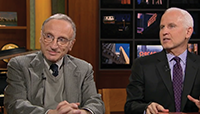
HUM 260: Alternatives: Modeling Choice Across the Disciplines
(SLAVIC 396)
Gary Saul Morson (Slavic Languages and Literatures)
Morton Schapiro, President of Northwestern (Economics)
Fulfills Distro 5 (Ethics and Values), Distro 6 (Literature and Fine Arts), or Interdisciplinary Distro
At any given moment, how many alternatives are possible? Is there really such a thing as chance or choice? On what basis do we choose? How does our understanding of the past affect the future? Professor Morson, a specialist in literature, and Professor Schapiro, a labor economist specializing in the economics of higher education, will offer alternative approaches to these questions based on the presuppositions of their respective disciplines.
Space is limited to 80 students for this popular course; professors will select students by a 150-word essay application due no later than Thurs., November 30 at 5pm (extended deadline). See CAESAR for application instructions.
HUM 325-4-20 – Digitizing Folk Music History
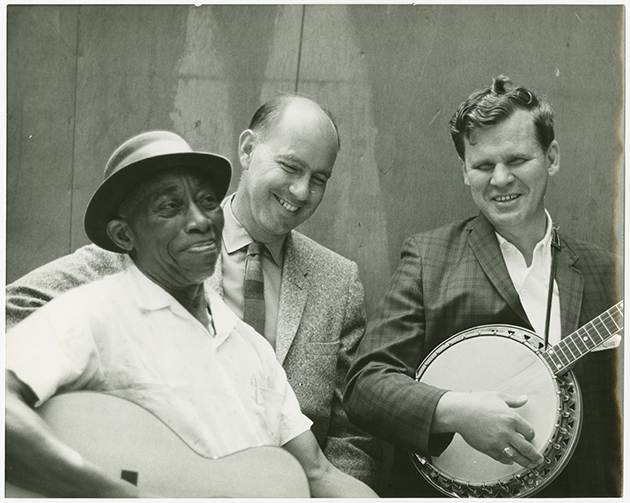 HUM 325-4-20: Digitizing Folk Music History
HUM 325-4-20: Digitizing Folk Music History
(HISTORY 395-0, AMER_ST 310-0)
Michael Kramer (History)
Fulfills Distro 4 (Historical Studies)
The United States folk music revival is typically thought of as an antimodern movement with acoustic guitars, camp fires, and "Kumbaya" politics. To study it through digital means, however, reveals important connections between the history of the revival and issues of technology, culture, and politics in the modern world. To investigage these connections, we'll examine this revival through readings, audio listening, documentary films, seminar discussions, and extensive digital analysis. We'll probe what was at stake in the folk revival in relation to American culture and politics; questions of race, class, gender, age, and region; and music-making, memory, and power. No previous digital or musical training is required for the course.
HUM 325-6-20 – Ancient Rome in Chicago
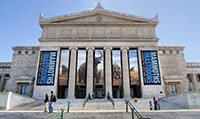
HUM 325-6-20: Ancient Rome in Chicago
(CLASSICS 390-0-1)
Francesca Tataranni (Classics)
Fulfills Distro 6 (Literature and Fine Arts)
Ancient Rome is visible in Chicago -- walk the city and learn to "read" the streets, buildings, and monuments that showcase Chicago's engagement with the classical past! You'll gain digital mapping and video editing skills as you collaborate on a virtual walking tour mapping Chicago's ongoing dialogue with antiquity. With a combination of experiential learning and rigorous research methodologies, you'll explore architecture, history, visual arts, and urban topography in this quintessential modern American city.
HUM 370-3 – Race and Indigeneity in the Pacific
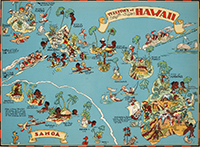
HUM 370-3: Race and Indigeneity in the Pacific
(ASIAN_AM 303-0 / AF_AM_ST 380-0)
Nitasha Sharma (African American Studies, Asian American Studies, Performance Studies) and Hi‘ilei Julia Hobart (Native American and Indigenous Studies)
Fulfills Distro 3 (Social and Behavioral Sciences)
NOTE: This course includes travel to Honolulu, Hawaii`i, the week before fall quarter begins (Sept. 10-17, 2017). Enrollment in this class is by application only. The application deadline is May 10, 2017. Full details are here: http://www.humanities.northwestern.edu/undergraduate/Courses/race-and-indigeneity-in-the-pacific.html
Since the so-called Age of Discovery, the Pacific has been conceptualized as a crossroads between the East and the West. By the twentieth century, places like Hawaii`i came to be idealized as harmonious multicultural societies. This class examines how race and indigeneity are constructed within the Pacific using an interdisciplinary approach. Drawing from works within indigenous studies, ethnic studies, and critical race studies, students will address themes of sovereignty, settler colonialism, diaspora, and migration in order to interrogate and problematize the concept of the multicultural 'melting pot' across time. We focus on the impacts of U.S. plantation economies, militarism, and tourism in shaping the triangulation of indigenous, Black, and Asian groups in Hawaii`i and across the Pacific.
HUM 370-4-20 – Dance and History: Archives, Performance, and Memory
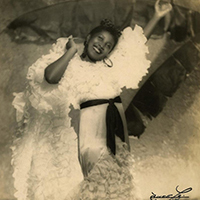
HUM 370-4-20: Dance and History: Archives, Performance, and Memory
(HISTORY 392 and DANCE 335)
Elizabeth Schwall (History; Andrew Mellon Postdoctoral Fellow in Dance Studies)
Fulfills Distro 4 (Historical Studies)
This seminar examines recent scholarship from Dance Studies, Performance Studies, and History to think about methods for studying performative events of the past and their traces. We discuss the possibilities and limitations of archives, the place of performance and memory in history writing, and feminist and queer studies perspectives on writing about bodies historically. Though focused particularly on dance, we also reflect on what cultural production more broadly can tell us about historical changes. By juxtaposing dance and history, as methods and subjects, we ask what does dance teach us about history and what does history teach us about dance?
HUM 370-4-20 – Materials Science and Socioeconomics of Portrait Mummies from Ancient Fayum
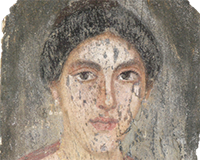
HUM 370-4-20: Materials Science and Socioeconomics of Portrait Mummies from Ancient Fayum
(MAT_SCI 395-0-20 / CLASSICS 390-0-3)
Taco Terpstra and Marc Walton
Fulfills Distro 4 (Historical Studies)
In this unique one-time seminar, we will look at the role scientific examination plays in investigating the production of ancient Egyptian mummy portraits and how these objects fit into the larger socioeconomic context of Roman Egypt in the 2nd century CE. These explorations will be presented in an exhibition at the Block Museum of Art (Paint the Eyes Softer: Mummy Portraits from Roman Egypt) during Winter 2018. Students will have the opportunity for hands-on work in a laboratory environment with an actual mummy from this period to assess how it was made, used, buried and what these data mean in a wider archaeological context. Students will gain insight into and actively contribute to exhibition layout and interpretation, and publicly share their research through a public program in winter 2018.
HUM 370-4-20 – Mobilizing Revolution: Dancing Histories of Cuba
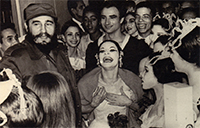
HUM 370-4-20:Mobilizing Revolution: Dancing Histories of Cuba
(HISTORY 392; LATIN_AM 391 and DANCE 335)
Elizabeth Schwall (History; Andrew Mellon Postdoctoral Fellow in Dance Studies)
Fulfills Distro 4 (Historical Studies)
Citizens and outside observers have called Cuba a dancing island. This course examines the origins and implications of this claim. We analyze the history of Cuba from slave colony to socialist republic as a past filled with movement. Weekly readings cover the choreographies of rebellion, ritual, and revelry during the colonial period, independence struggles, republican era, and following the 1959 Revolution. Throughout we ask the place of dance in daily life and its role in reflecting and shaping historical changes to Cuban politics, society, and culture.
HUM 370-4-21 – Red Power: Indigenous Resistance to U.S. Colonialism, 1887-Present
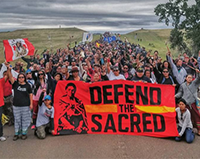
HUM 370-4-21: Red Power: Indigenous Resistance in the U.S. and Canada, 1887-Present
(HISTORY 393-0-20)
Doug Kiel (History and Humanities)
Fulfills Distro 4 (Historical Studies)
In 2016, thousands of Indigenous water protectors and their non-Native allies camped at the Standing Rock Indian Reservation in an effort to block the construction of the Dakota Access Pipeline. That movement is part of a long history of Native activism. In this course, we will examine the individual and collective ways in which Indigenous people have resisted U.S. colonial domination since 1887. Most of the course will focus on the contiguous United States, but we will also turn our attention to Alaska, Hawaii, and the U.S. territories. This course will highlight religious movements, inter-tribal organizations, key intellectual figures, student movements, armed standoffs, non-violent protest, and a variety of visions for Indigenous community self-determination.
HUM 370-4-21 – Slavery, Religion, and the Philosophy of Freedom in Ancient and Modern Times (RELIGION 379-0 / PHIL 361-0)
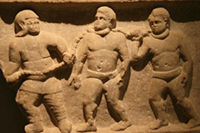
HUM 370-4-21: Slavery, Religion, and the Philosophy of Freedom in Ancient and Modern Times
(RELIGION 379-0 / PHIL 361-0)
Mark Alznauer
Fulfills Distro 4 (Historical Studies)
This course examines one of the most important ideals of our time -- freedom -- within the context of slavery and religion. Rather than assuming slavery and freedom are unrelated opposites, this class focuses on the relationship between freedom and slavery within the context of religion and philosophy from ancient to modern times. Four general periods receive focus: antiquity, medieval, early modernity, and developments since the nineteenth century. The course readings will focus on key themes that include: the role of slavery and freedom in religious traditions; Hegel's conception of freedom and slavery; the Haitian Revolution; slavery and abolition; the causal relation between slavery and freedom; gender and reform movements and their relation to slavery and feminism; the sex-trade and slavery; and recent movements for abolition democracy.
HUM 370-4-22 – Constructing Identity in the Ancient Mediterranean World
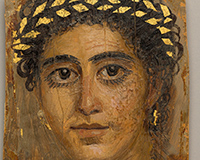
HUM 370-4-22:Constructing Identity in the Ancient Mediterranean World
(ART_HIST 319)
Ann Gunter (Humanities, Art History, and Classics)
Fulfills Distro 4 (Historical Studies)
How did individuals define themselves in the ancient Mediterranean world, and how did they express their affiliation with multiple and diverse ethnic, religious, and other collective social identities? This course explores evidence for self- and group-fashioning in Greece, Rome, and their neighbors in Egypt, Mesopotamia, and Persia. We examine a wide range of textual and material sources, including works of art, archaeological contexts such as burials and religious institutions, biographies, autobiographies, and legal documents. We consider culturally significant modes of self-representation and commemoration, such as portraits and funerary monuments, along with the collecting and transfer of objects that represented accumulated social entanglements, such as heirlooms. What do we know of the construction of gender identities? What dynamic roles did dress, hairstyle, body decoration or ornament, and personal possessions play in establishing and expressing individual and collective identities?
This course will draw extensively on museum resources in the Chicago area. It engages in particular with the concurrent Block Museum exhibition titled "Paint the Eyes Softer: Mummy Portraits from Roman Egypt," which emphasizes material expressions of individual and collective identities within the global, multicultural world of the Roman Empire.
HUM 375-5-20 – Dietary Decolonization
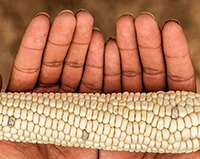 HUM 370-5-20: Dietary Decolonization
HUM 370-5-20: Dietary Decolonization
(ANTHRO 390 and AMER_ST 310)
Hi‘ilei Julia Hobart (Postdoctoral Fellow in Native American and Indigenous Studies)
Fulfills Distro 5 (Ethics and Values)
In response to the negative social effects of globalization and industrialization on the contemporary food system, there has developed increased attention to questions of sustainability, food justice, and food sovereignty. While such concepts are useful for thinking about liberatory food futures more generally, they often draw upon foundational Indigenous concepts without directly naming them as such. This course, then, focuses on new discourses about food sovereignty by highlighting (rather than obscuring) the linkages between decolonial or sovereign food futures and histories of erasure and dispossession of Native peoples. Taking an interdisciplinary approach, course readings draw from the fields of Food Studies, Indigenous Studies, and Pacific Island Studies in the form of academic articles, cookbooks, short film, and poetry. Throughout, we will question the potentialities of food sovereignty within the settler state, whether dietary decolonization is possible in the so-called age of the Anthropocene, and the limits of working within and against today’s legacies of the colonial food system.
HUM-370-6-20 – Across the Waters: How Labor, Commodities, and Art Connect the Atlantic with the Indian Ocean
 HUM 370-6-20: Across the Waters: How Labor, Commodities, and Art Connect the Atlantic with the Indian Ocean
HUM 370-6-20: Across the Waters: How Labor, Commodities, and Art Connect the Atlantic with the Indian Ocean
(ASIAN_AM 370 and AF_AM 381)
Kaneesha Parsard (African American Studies, Latin American and Caribbean Studies; Andrew Mellon Postdoctoral Fellow in Critical Race Studies)
Fulfills Distro 6 (Literature and Fine Arts)
How are ocean geographies connected rather than separated regions? This multidisciplinary course helps students move beyond dominant geo-historical paradigms to gain a new understanding of how Africa, India, and the so-called New World were and are interconnected through the circulation of labor, goods, and aesthetics. Beginning in the early modern period, it addresses processes and events such as trade networks; European imperialism; African enslavement and Asian indenture in the making of Caribbean and Indian Ocean plantation societies; and contemporary artistic and critical discourses on the histories of migration, labor, and cross-racial relations throughout these ocean worlds. The assigned readings include primary sources such as maps, portraits, and travel literature; novels and films; and critical essays.
HUM 370-6-20 – American Environmental Literature
 HUM 370-6-20:AmericanEnvironmental Literature
HUM 370-6-20:AmericanEnvironmental Literature
(ENGLISH 378 and ENVR_POL 390)
Sarah Dimick (English; Andrew Mellon Postdoctoral Fellow in Environmental Humanities)
Fulfills Distro 6 (Literature and Fine Arts)
In this course, we will explore what Lawrence Buell terms "the environmental imagination." Through reading, conversation, and written reflection, we will pursue a series of questions: How have American writers imagined and depicted wilderness, toxicity, and interconnection? What are the political and social consequences of their visions? How have their portrayals of the environment influenced how we use and value it? Ranging from canonical American nature writing to the literature of nuclear fallout, from poems about urban gardening to stories of communities weathering a warming world, we will pay particular attention to the way literary forms both encapsulate and reveal environmental change. Throughout this course, we will also consider the relationship between environmental writing and activism, reflecting on literature's unique capacities to expose environmental risks and envision a variety of environmental futures.
HUM 370-6-21 – Voices of Environmental Justice
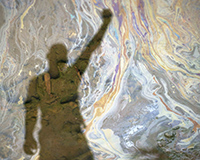
HUM 370-6-21: Voices of Environmental Justice
(ENGLISH 385 and ENVR_POL 390)
Sarah Dimick (English; Andrew Mellon Postdoctoral Fellow in Environmental Humanities)
Fulfills Distro 6 (Literature and Fine Arts)
This course explores the intersection of the arts and environmental justice movements around the world. We will discuss a broad array of literary texts and other creative projects, considering the relationships between systems of human injustice and environmental issues -- including industrial disasters, ocean acidification, and resource extraction. We will examine environmental justice writing and artwork with a transnational, interconnected approach. For example, we will ask how the Ogoni activist Ken Saro-Wiwa's writing on oil pipelines in the Niger Delta anticipates American Indian statements against the Dakota Access Pipeline. We will draw connections between a poem documenting silicosis in the lungs of West Virginian coal miners and a novel portraying the aftermath of the Union Carbide gas leak in Bhopal. We will compare a nonfiction account of Kenyan women resisting deforestation and an iPhone app reclaiming public access along the Malibu coast. Throughout these works, we will explore questions of voice, genre, and narrative, cataloguing the strategies writers and artists use to make their positions translatable on a global stage.
HUM 370-6-21 – Work and Wuk: Caribbean Literary and Visual Cultures
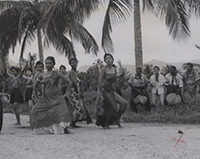
HUM 370-6-21:Work and Wuk: Caribbean Literary and Visual Cultures
(GNDR_ST 341 and LATIN_AM 391)
Kaneesha Parsard (African American Studies, Latin American and Caribbean Studies; Andrew Mellon Postdoctoral Fellow in Critical Race Studies)
Fulfills Distro 6 (Literature and Fine Arts)
While tourist boards and hotel companies promote the Caribbean as a paradise of "sun, sex, and gold," what lies beyond this imaginary? This seminar explores literature and visual arts in the English-speaking Caribbean through the lenses of labor and gender and sexuality. In "Work and 'Wuk'," we will begin by examining narratives written by enslaved African women in the Caribbean. Then, we will turn to short stories, mixed-media works, and other literary and visual works by Caribbean women and gender and sexual minorities that represent major historical events: labor migration from Asia to the Caribbean, working-class movements, decolonization, and migration of Caribbean peoples to North America and Great Britain. Throughout, we will gain an understanding of how these Caribbean writers and artists have developed homegrown ways of seeing the region.
HUM 370-6-22 – Shakespeare: The Whole Journey
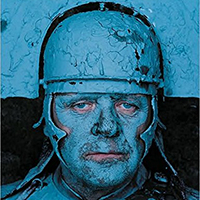
HUM 370-6-22: Shakespeare: The Whole Journey
(ENGL 339)
Peter Erickson (Theatre and African American Studies)
Fulfills Distro 6 (Literature and Fine Arts)
The 20th century British poet and literary critic T. S. Eliot wrote that one "must know all of Shakespeare's work in order to know any of it." This course takes a journey along the whole of Shakespeare's plays that will enable us to ask: what do we learn when we pursue this comprehensive perspective? As Eliot puts it, "The standard set by Shakespeare is that of a continuous development from first to last" that ultimately becomes a display of Shakespeare's "power of development." In various ways we will consider what generates this power and what role different genres at different moments may play in activating this ongoing process. What stories do we see when we imagine the Shakespeare corpus as incremental narratives? How does Shakespeare's use of generic form change over time? How does the overall sequence of these changes create strikingly different endings and outcomes?
